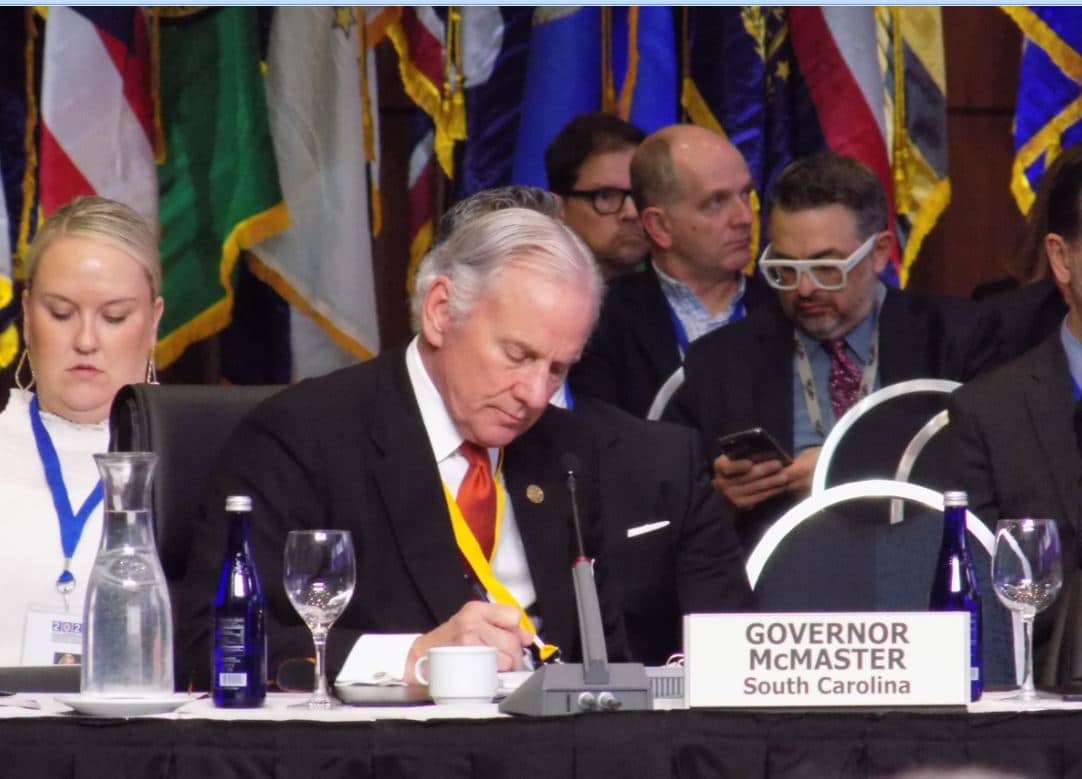SC Supreme Court Strikes Down Six-Week Abortion Ban

COLUMBIA, S.C. — The South Carolina Supreme Court on Thursday struck down the state’s ban on abortion six weeks into a pregnancy, ruling the restriction violates the state constitution’s right to privacy.
The 3-2 ruling comes nearly two years after Republican Gov. Henry McMaster signed the measure into law.
The court’s voiding of the so-called “heartbeat” bill means South Carolina’s previous ban on abortions after 20 weeks of pregnancy will stay in place.
“The state unquestionably has the authority to limit the right of privacy that protects women from state interference with her decision, but any such limitation must be reasonable and it must be meaningful in that the time frames imposed must afford a woman sufficient time to determine she is pregnant and to take reasonable steps to terminate that pregnancy,” Justice Kaye Hearn wrote in the majority opinion.
“Six weeks is, quite simply, not a reasonable period of time for these two things to occur, and therefore the act violates our state constitution’s prohibition against unreasonable invasions of privacy,” she continued.
Hearn, the court’s lone woman, is set to retire later this year.
McMaster said in a brief statement that the court majority had “clearly exceeded its authority.”
“The people have spoken through their elected representatives multiple times on this issue,” he continued. “I look forward to working with the General Assembly to correct this error.”
South Carolina is one of 10 states that includes a specific citizen’s right to privacy in its constitution.
During arguments over the abortion ban, the state argued that right to privacy applied only to criminal defendants in the context of search and seizure and did not extend to an individual’s decisions about their own medical care.
It went on to say that the state constitution does not mention anything about abortion or a woman’s right to the autonomy of her own body.
But a majority of justices on the court rejected these arguments, finding, among other things, that they flew in the face of prior state Supreme Court rulings.
Hearn went on to write that because most women don’t know they’re pregnant until about six weeks, an abortion ban at that point would preclude women from being able to make an informed choice about whether to continue their pregnancy.
“At the risk of stating the obvious, in order for a choice to be informed, a woman must know she is pregnant,” she wrote. “Once a woman knows she is pregnant, in order to have a choice, options must be available.”
Hearn wrote it would be “impossible” for the average woman in South Carolina to have sufficient time to weigh her options, schedule an appointment at one of the three abortion clinics in the state and comply with the mandatory waiting periods before having an abortion.
“This confirms that in reality, there is no ‘choice’ at all,” she wrote.
Immediately after the ruling was handed down, South Carolina Attorney General Alan Wilson issued a statement in which he said he and his legal team “respectfully, but strongly, disagree with the court’s ruling.”
“We’re working with the governor’s office and legislature to review all our available options moving forward,” Wilson said.
Meanwhile, at the White House, Press Secretary Karine Jean-Pierre said the Biden administration is “encouraged” by the state Supreme Court’s ruling.
Calling the state’s six-week abortion ban “extreme” and “dangerous,” Jean-Pierre went on to say, “Women should be able to make their own decisions about their bodies.”
Dan can be reached at [email protected] and @DanMcCue

























